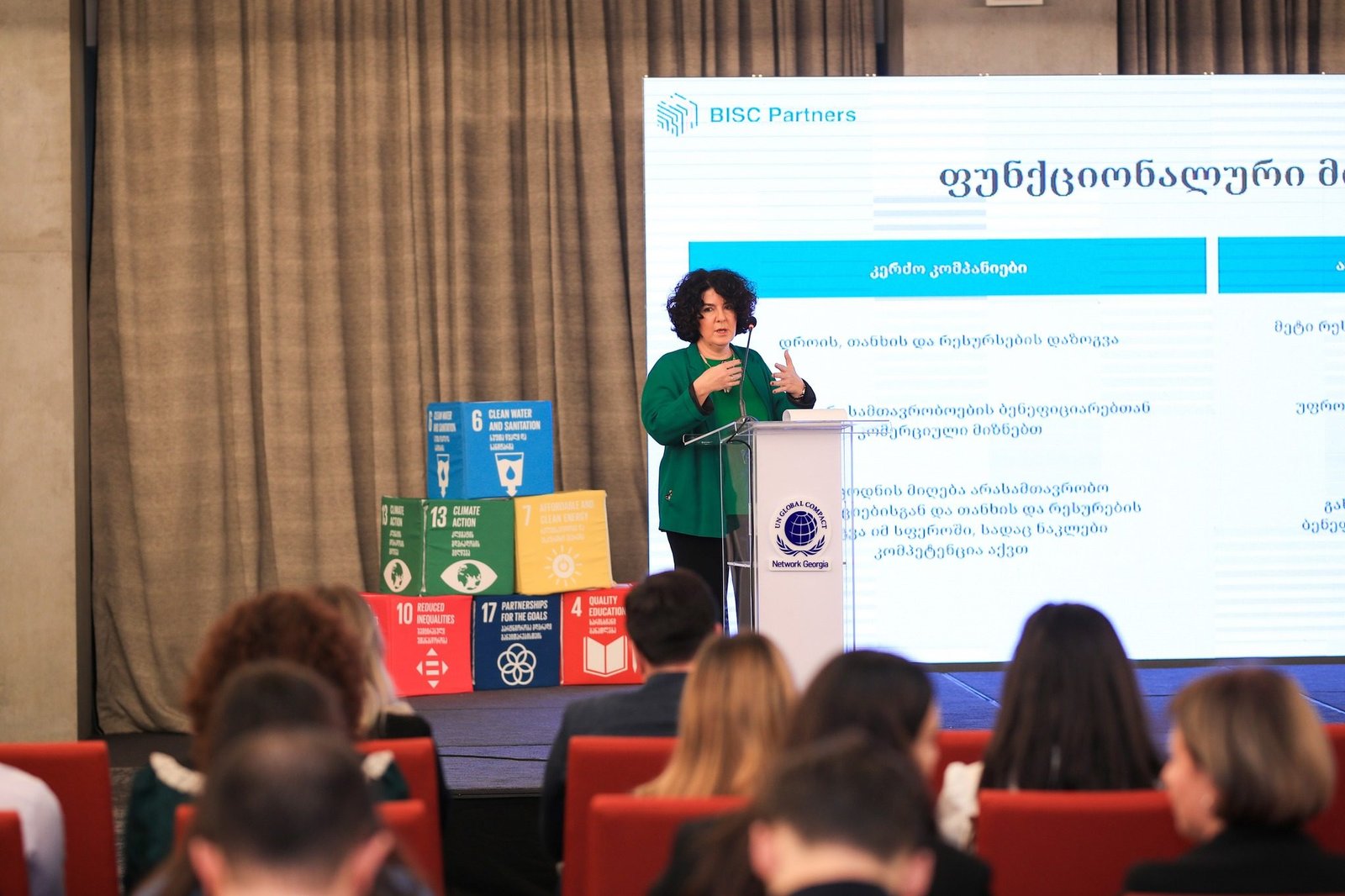On November 29, Tinatin Stambolishvili, CEO of BISC Partners, presented findings of the research: “Behavior Drivers of Partnership between private and CSO organisations” research report at the partnership forum organized by the initiative of the Global Compact Georgia Network and supported by the USAID Civil Society Engagement Program.
The research was implemented within the framework of the Global Compact Georgia Network (UN Global Compact) and the US Agency for International Development (USAID) Civil Society Engagement Program.
The purpose of the research was to reveal the behavioral barriers and challenges or motivators that prevent or encourage cooperation between the private sector and civil society / non-governmental organizations. With the help of the research, it became possible to identify opportunities for strengthening cooperation.
“We are happy to have been given the opportunity to explore this issue with a combination of traditional and new methodology and to see the conscious and unconscious barriers and motivators that are important to encourage intersectoral cooperation. According to the research implemented by the Global Compact Georgia Network, 40% of private companies want to be involved in partnership projects, although their number is small. The number of companies where this is part of their strategy is even smaller. In such cases, when the declared positive attitudes are not translated into actions, it is interesting to for are the actual drivers of behavior.” – Tinatin Stambolishvili, Executive Director & Integrated Communications Lead of BISC Partners.
The forum was attended by representatives of Global Compact Network Georgia, USAID, EWMI and the private and civil sector.
USAID’s Civil Society Engagement Program aims to strengthen civil society. Assist new and existing civic actors in building capacity, legitimacy and confidence to effectively represent citizens’ interests. One of the most important components of the program is the encouragement of partnership projects between business and non-governmental organizations, through the development of corporate responsibility.

